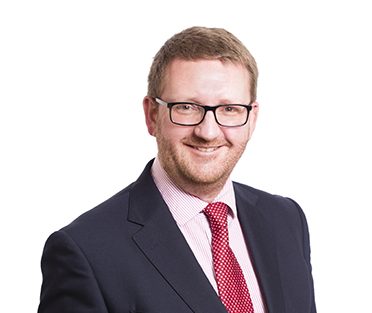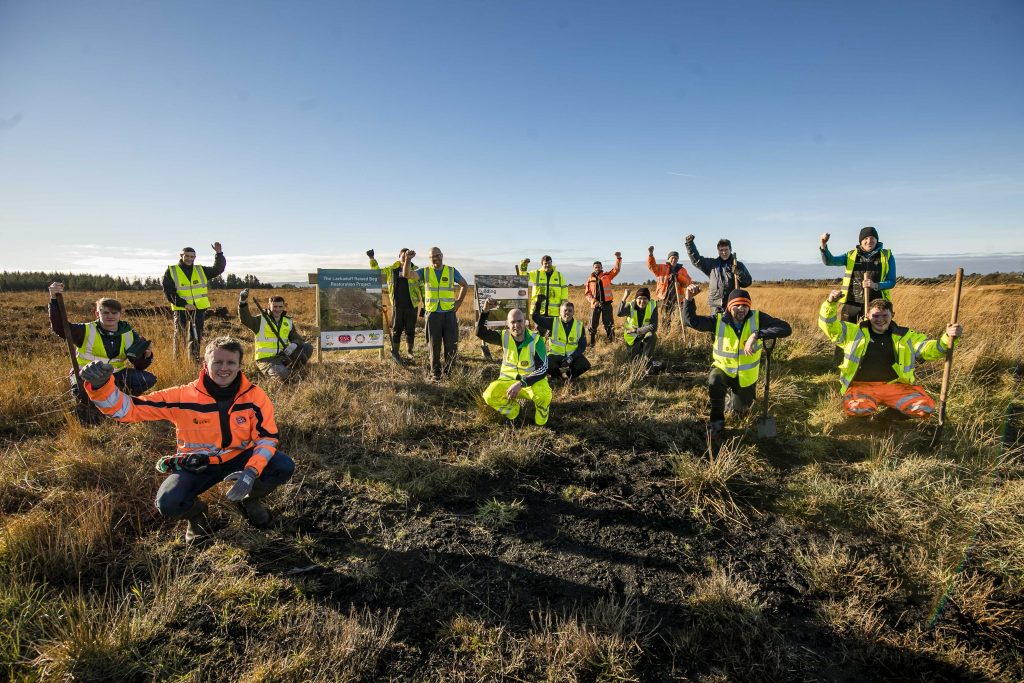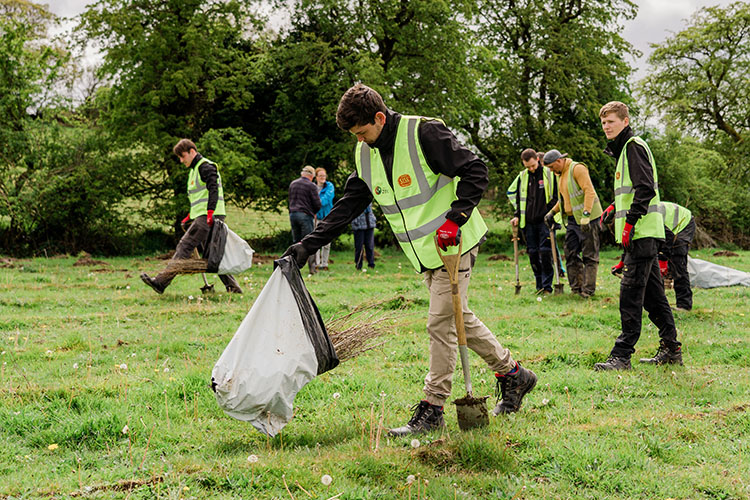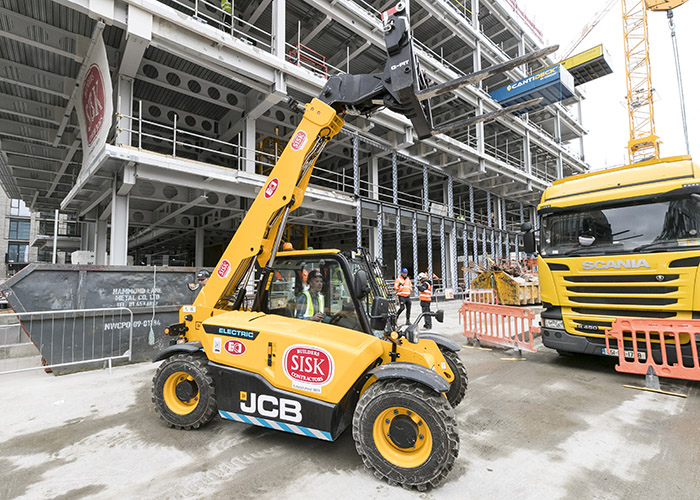
Wayne Metcalfe, Director for Health, Safety, Sustainability & Quality, John Sisk & Son, tells BARRY MCCALL that Sisk staff are driving change as the company makes rapid progress in its push to be Ireland’s first carbon-neutral without offsets contractor.
John Sisk & Son has set the ambitious target of becoming a carbon-neutral business by 2030. That’s a taller order than it might sound at first because it excludes the use of carbon offsets (carbon credits that organisations can buy on the market to offset their emissions). Sisk already achieved carbon neutral status – with offsets – in 2021. The challenge now is to eliminate the need for offsets over the next eight years.
Sisk 2030 Sustainability Roadmap
This is just one of the 21 ambitious targets Sisk set for itself in its 2030 Sustainability Roadmap – Building Today, Caring for Tomorrow, launched in 2020. The company is soon to publish its first Sustainability Report providing an update on these targets, covering 01 January 2021 to 31 December 2021.
The report is being prepared in accordance with Global Reporting Initiative (GRI) standards. GRI is an independent, international organisation and the global standard-setter for sustainability impact reporting.
Sisk’s sustainability commitments go far beyond climate action and emissions reductions.
“We are fully engaged in delivering on our commitments and in supporting the UN Sustainable Development Goals (SDGs),” says Wayne Metcalfe, Director for Health, Safety, Sustainability & Quality, John Sisk & Son. “The SDGs are central to our ambition. They inform our actions and delivery and underpin our focus on the three pillars of sustainable development – environment, social and economic.”

Environmental Product Declarations
Also, in 2020, Sisk signed up to the Irish Green Building Council’s (IGBC) Environmental Product Declarations (EPDs) commitment. The EPD programme focuses on securing the commitment of businesses in the construction sector to support and enable Ireland to decarbonise fully. EPDs are a standardised way of providing data about the environmental impacts of a product through its life cycle.
“The starting point is getting people thinking about the carbon consequence of the products and materials we put into the built environment,” says Metcalfe. “Once they understand that, they can start to think about addressing it. EPDs offer a structured way of understanding carbon consequence. They enable you to compare like with like by indicating the carbon consequence in tonnes or similar of the product.”
He gives an example of how this can work in practice. “If there are three specification compliant materials, it is a way to make the right informed choice for the environment,” he says.
Those choices are affecting the market.
“We are seeing the supply chain responding with more and more products coming to market with EPDs,” he says. “The number is increasing year on year as more people make more informed decisions. Manufacturers and distributors are starting to think about product ranges. Sisk looks at EPDs to make more informed decisions. For Sisk, price and specification used to be the main drivers; carbon consequence didn’t really come in for consideration. But that has changed now.”
#BuildingLife Campaign
But this all goes beyond products. The IGBC has launched the #BuildingLife campaign to decarbonise Ireland’s built environment across its whole life cycle.
“We are seeing much greater thought being put into decisions by developers and asset owners around the carbon impact of buildings over their full life cycle,” Metcalfe explains. “They can use EPDs for this and make life cycle assessment much simpler. Without them, it’s a more complex analysis. We are definitely seeing people make more climate-conscious decisions in relation to the products they buy, the places they live, and the organisations they work for.”
As part of #BuildingLife the IGBC has brought together representatives from across the sector to act as ambassadors and produce a science-based and industry-backed national decarbonisation roadmap for the built environment, and Wayne Metcalfe is one of those ambassadors. “BuildingLife Ambassadors is a great programme,” comments Metcalfe. “It’s a collective of people who have come together to make a real difference.”
Net-Zero emissions by 2030
Progress on Sisk’s commitment to achieving net-zero emissions by 2030 is going well, according to Metcalfe.
“It’s a roadmap with a number of sequential milestones to get to net zero. We are really pleased to have reached the first one. In 2021, we became a carbon-neutral company with offsets. Now we are reducing the requirement for offsets by cutting the amount of carbon we produce. We are doing this by focusing on carbon and factoring it into all our decisions. We are also using data to much greater effect to make further improvements. It won’t happen by accident. It will require relentless focus, leadership, and drive.”
The plan is to reduce offsets to zero by 2030.

“We will gradually reduce our dependency on offsets,” he adds. “We will look at every opportunity to sequester carbon. That will contribute in its own way to balancing the equation. We will do it in a sensible staged process. We want to make sure we are where we want to be by 2030.”
Energy consumption is high on the agenda.
“We are on a bit of a journey with energy. We are identifying opportunities to reduce energy-related emissions through enhanced consumption and efficiency monitoring,” Metcalfe explains. “We want to gain a more forensic understanding of where we are wasting energy. You often hear about zero waste to landfill. We want to do the equivalent with our energy usage and drive out all energy waste.”
The data collected through metering and monitoring has thrown up some interesting results.
“We found that a significant proportion of our energy consumption occurs when we are not actually building anything,” he notes. “We were using quite a lot at night and so on. When we got over the shock of that we started using the expertise of our mechanical and electrical engineers to address the issue. Our people love a challenge.”
On-site renewable energy
The company is also working to bring renewable energy generation to its sites.
“We are looking at wind and solar. Wind is a bit more complex. But we have cabins with big flat roofs on sites, and all of them offer big opportunities for solar. Within a year, we will be pushing out solar capability to all of our cabin stock. Solar PV has improved so much in the past few years, and these cabins will make a significant contribution to electrical needs on sites. We can use battery storage to balance demand as well. We have two batteries on trial at the moment. We also have a trial up and running looking at how we could use the cabin solar arrays to top up an EV battery that in turn could power site vehicles or equipment. However, there is a little bit of work to do on that. But within a year, we will have cabins available straight off the shelf for every site. This is all being driven by our teams, not by management. We have marvellous teams here in Ireland and overseas who enjoy responding to challenges like this.”
Sustainability management system
The management approach is also important.
“Our dedication to sustainable operations is embedded in everything we do,” says Wayne Metcalfe. “Across our operations, we have led from the front in embracing continuous improvement and taking progressive action to support sustainability, with Sisk operations conforming to the ISO 14001: Environmental Management System standard for over a decade.
“When we started out with ISO14001, we were principally focused on environmental compliance. This has now evolved into a much broader approach to the environment, and we now have the Sisk Sustainability Management System, which goes a lot further than compliance. It covers a whole range of things from compliance at one end of the spectrum through to social value and delivering for communities in which we work at the other.”

Sisk staff commitment
He emphasises the contribution of Sisk employees to that achievement.
“Management sets out the challenge and the overall vision of going about our business in the most responsible way we can. We communicate that to the team, and they get on with making it happen. We give them ideas at times, but more often it is they who are coming up with the ideas that make a difference.
Environmental conservation works
Its social and environmental commitment has seen Sisk get involved in restoring 50 acres of peat bog in Co Mayo. This is a partnership with Green Restoration Ireland (GRI) and a local farmer, which saw rewetting work on the bog at Lackaduff commence in November 2021.
“This is a perfect example of what started as a conversation among a few of us on what we could do to make a difference,” Metcalfe recalls. “We started talking about peat and the sequestration capacity and acreage of bogs that have been dried out and no longer used. One of the team went away and came back with the idea of doing something about it at Lackaduff. It is making an immediate difference to the community through improved habitats, wetlands and so on.
“The volunteering aspect is important as well. Our people have really enjoyed being part of this. It will take a number of years for the carbon effects to be felt, but it’s been a real win-win for all concerned. We are very proud of this project. It shows how our involvement can make a difference to a real-life problem.”
Another significant environmental contribution comes from Sisk’s plan to plant 1.7 million native woodland trees across Ireland, the UK and Europe by its 170th anniversary in 2029.
“In 2021, we planted over 110,000 native trees – alder, oak, and birch, in Ireland, and over 1,000 native species were planted in Sweden. We will continue planting in Ireland, and we will plant another 10,000 trees in Sweden this year. The positive approach at the highest level of government in Ireland to support tree-planting programmes makes it easy for organisations like Sisk to get involved.
“Sisk received its 2021 CDP (formerly Carbon Disclosure Project) rating and achieved a B result, improving from a B- in 2020 and 2019.
“When we drew up our roadmap, we knew it had to be credible and stand up to external scrutiny. It’s really, really important for us not to be accused of greenwashing, so we looked for international standards and decided to align with the CDP. We want to get to an A rating, and the next step for us is to move from B to A. We have a specific action plan to help us on that journey. The CDP process is very rigorous. It forces participants to be conscious of what they are doing all the time. It’s about being on a continuous improvement journey. If you stand still, you will ultimately go backward
- ``For Sisk, price and specification used to be the main drivers; carbon consequence didn’t really come in for consideration. But that has changed now.”
Industry challenge
Wayne Metcalfe concludes by calling on others in the industry to join in the decarbonisation journey.
“I have been so impressed with the way the industry in Ireland responded to Covid-19. If we can respond to the climate crisis in the same way, the industry here can play a lead role globally. And, we can achieve this if we work together.”



